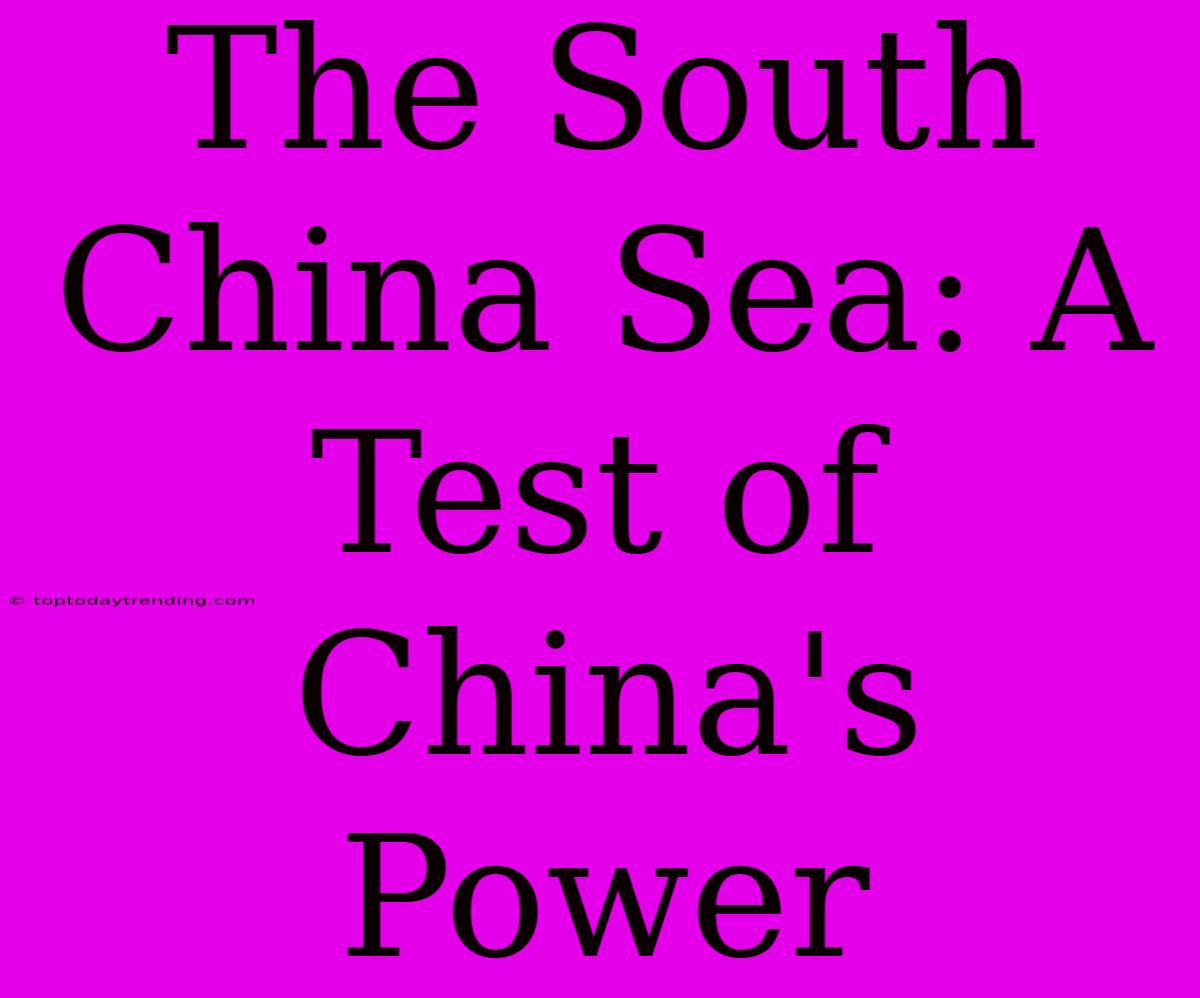The South China Sea: A Test of China's Power
The South China Sea, a vital waterway teeming with trade, resources, and strategic significance, has become a hotbed of geopolitical tensions. China's increasingly assertive claims over the sea, its rapid military buildup, and its assertive actions have put its relationship with regional powers and the United States to the test. This article delves into the complexities of the South China Sea dispute, examining China's ambitions, the regional and international responses, and the potential ramifications for global security.
China's Assertions and Ambitions
China's claims over the South China Sea are based on its historical "nine-dash line," a disputed map that lays claim to almost the entirety of the sea, including waters within the exclusive economic zones (EEZs) of several Southeast Asian nations. Beijing justifies its claims by invoking historical precedent and asserting sovereignty over islands and reefs in the sea.
China's ambitions extend beyond mere territorial claims. The South China Sea holds vast reserves of oil and gas, critical fishing grounds, and strategically important sea lanes. Control over the sea would grant China a significant economic and military advantage, allowing it to project power into the region and beyond.
The Regional Response
The Southeast Asian nations directly affected by China's claims, including Vietnam, the Philippines, Malaysia, Brunei, and Indonesia, have challenged Beijing's assertions. These countries have been asserting their own sovereignty over their EEZs and have been actively developing their military capabilities to counter China's growing influence.
Regional alliances like ASEAN (Association of Southeast Asian Nations) have tried to act as a mediator, promoting peaceful resolution through dialogue and multilateral engagement. However, the lack of a unified stance within ASEAN and China's unwavering stance have hindered progress.
The United States' Involvement
The United States, a major power with a strong interest in maintaining freedom of navigation in international waters, has become increasingly vocal in opposing China's actions. The U.S. has conducted regular "freedom of navigation" operations in the South China Sea, asserting its right to operate freely in international waters. The U.S. has also engaged in military exercises with its allies in the region, bolstering regional security and deterring Chinese aggression.
The Risks and Implications
The South China Sea dispute carries significant risks for the region and beyond:
- Escalating Conflicts: The potential for military clashes between China and its neighbors is a growing concern. Increased naval deployments, territorial disputes, and incidents like the Scarborough Shoal standoff demonstrate the fragility of peace.
- Regional Instability: The tensions in the South China Sea are creating a climate of distrust and suspicion, hindering regional cooperation and economic development.
- Global Security: The South China Sea's strategic importance extends far beyond the region. The potential disruption of global trade routes, energy supplies, and military movements could have significant global consequences.
Moving Forward
The South China Sea dispute demands a peaceful and diplomatic solution. Here are some key considerations:
- Dialogue and Diplomacy: Open and honest dialogue between China and its neighbors is essential to address concerns and find common ground.
- International Law: The international legal framework, including the UNCLOS (United Nations Convention on the Law of the Sea), must be upheld.
- Multilateral Cooperation: ASEAN and other regional organizations can play a crucial role in facilitating dialogue and promoting regional stability.
- De-escalation of Tensions: All parties must refrain from actions that could escalate tensions, including military buildup and aggressive actions.
The South China Sea remains a critical test of China's rising power and its commitment to a rules-based international order. Finding a sustainable solution to this complex dispute is vital for maintaining regional and global peace and security.

